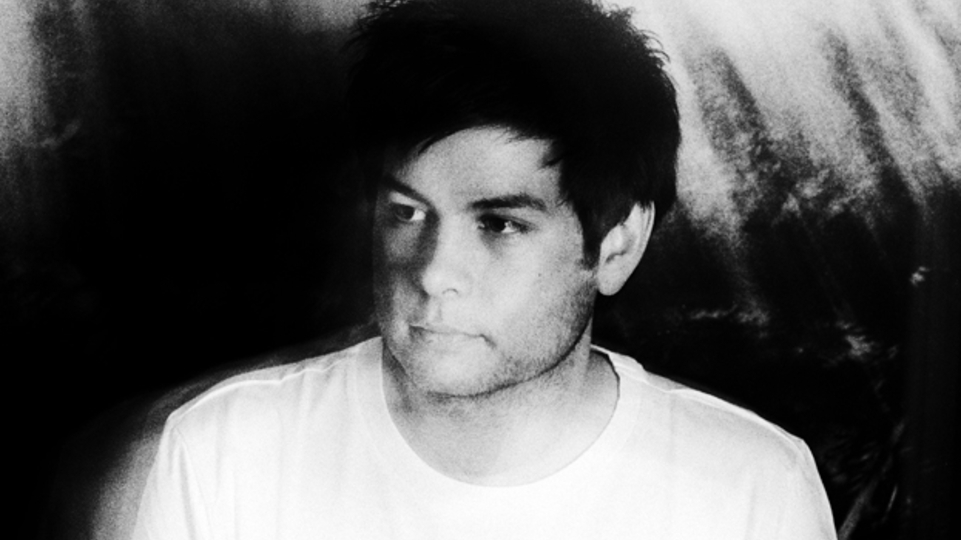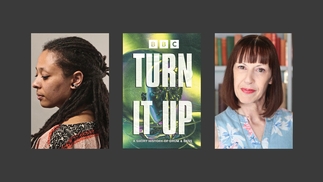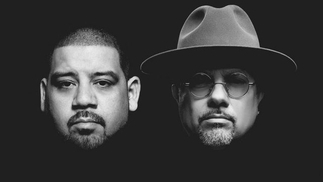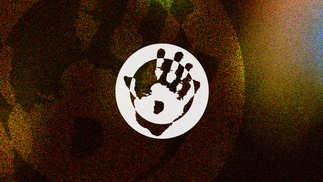MEDLAR INTERVIEW
We speak to the Wolf Music artist on his debut album

Over the last few years Medlar, aka South Londoner Ned Pegler, has honed a reputation for creating a distinctly warm, funk infused strain of house music. Amidst a scene which is becoming increasingly swamped by endless new producers making hybridised house and garage, it's rare to find a name who stands out so far from the crowd. Yet Medlar effortlessly maintains his quirky, idiosyncratic style, conjuring the energy of Chicago house through infectious melodies and soulful vocal cuts that have seen him consistently filling dance-floors with records such as 'Terrell' and (appropriately enough) 'Floor'.
In the run up to the release of his debut album 'Sleep', we took five with Ned to find out where it all begun and how his varied musical palette and experiences of the industry has and continued to shape both his DJing and his superb productions...
You're based in South London. Out of curiosity, is there any connection between your DJ moniker and Medlar Road in Camberwell?
“I live about five minutes away from Medlar Street but there's no connection, sorry to disappoint! A medlar is a fruit that people make jam with. I heard the word on Gardener's World question time on Radio 4 while I was at my dad's. Pretty cool, right?”
Where and when did your DJ career begin?
“I bought my first decks in 2002, and played drum and bass records in my bedroom and at the occasional house party. When I moved to Brighton I started to play out wherever I could, in clubs as well as playing all kinds of 'old' music in pubs. I played for four hours a night at a weekly student night every Tuesday for four years, which had good and bad sides to it. I feel quite lucky now though, experiencing all manner of technical difficulties, clearing floors, dealing with wasted crowds and all those terrible requests... they've made it almost impossible to get shaken in bad situations. It also taught me a lot about sequencing sets and trying to build something.”
How did you become connected to Wolf Music?
“When in Brighton I worked as an intern with Mr Bongo, a record label (and former London record shop) who specialise in Latin music. Greymatter worked there, and Matt Wolf was using the same office. It's funny now, as I was mainly into a lot ruder UK dance music then. But no doubt that year exposed me to a lot of music that fall under my current influences. After I'd left Brighton I made 'Terrell' and sent it onto Graham Greymatter, who convinced me to hit up Matt. And that's how it all came together!”
It seems fair to say that with DJing there is a little more showmanship required than there is with producing, where your ego takes a back seat and lets the creativity do the talking. Does your personality side more with the bravado of the DJ or the reflective stance of the producer?
“I think it can apply to both really. Sometimes I'll play really party-type sets and go through loads of genres and a few more well-known tunes, which could either be seen as egotistical or just letting people have a fun night. With production it's really easy to start over analysing things and drive yourself a bit loopy. I think a healthy balance between the two is a good thing.”
DJs such as Oneman and Ben UFO demonstrate that high acclaim can be achieved through DJing alone. Where do you stand on the topic? Do you feel that your productions were an essential prerequisite for your DJ career, or had you learnt how to mix long before hitting the studio?
“I was learning both simultaneously really, so I do find it a little hard to comprehend when some producers need to learn to DJ so they can tour. The amazing thing is that anyone can get away with it, the music will be in time and people will dance, but it can be so much better when a DJ is genuinely paying attention to the crowd and has a knowledge of the music they're playing. Very few of my favourite DJs are producers as well. Sadly it's very hard to break into without running a label or something, though I encounter really great resident DJs all over the place, often far better than the headline act!”
Strong vinyl purist, digital...or a bit of both?
“Bit of both for sure. Generally my sets are over 90% vinyl, but I'm not going to say that digital's rubbish because it obviously isn't! I've been thinking about migrating my CD wallet into a USB stick. Also if I find a reliable way of ripping vinyl then I'm not averse to that as I'll often wish I had a record with me that I've left at home. The whole sync button argument I don't really get to be honest, someone still needs to pick a track and start it at the right point. It's all good.”
Have there been any landmark tunes, labels or people who have inspired you along the way?
“Calibre is an all-time inspiration of mine, I love his music. He's so prolific and has operated within a scene that's very unrepresentative of his own style for a long time, so I have lots of respect for him. Also, when I first discovered Metro Area they basically sold the idea of disco to me, something I had no interest in whatsoever beforehand. Oh, and Vakula...”
South London, Peckham in particular, is fast-becoming the new hotspot for underground music. Any particular venues or nights you can recommend?
“The Bussey Building is a really cool spot and there'll be loads of different things going on in different parts of the same building on any given night: gospel church singing, a Shakespeare performance, a Detroit techno night etc etc. I've had a few fun nights in the Peckham Palais too.”
How has the underground electronic music scene evolved since you first became involved. Have you noticed any significant positive or negative changes?
“There are far fewer boundaries between genres now than ever before. Dubstep taught me, and a lot of other people of my generation, that you can combine techno with dub and garage (for example) and it works, whereas before I think a lot of these scenes were worlds apart. I hear a lot of older house DJs saying that ten years ago it would be pretty hard to play a set of different sub-genres of house music without clearing a floor.”
Your mixes (Tief 005 being a remarkable example) demonstrate some highly eclectic influences, which are also evident in your own tracks. Which genres would you say have had the strongest impact on your own productions?
“I came up with the Medlar name as a concept of writing music rooted in house music culture, so it's really been an amalgamation of everything I've liked from house and disco culture since I've started exploring it. Disco, early Chicago house, Detroit house and hip-hop have all been big influences on the music I've written as Medlar.”
And do these differ from the musical styles you listen to for enjoyment and relaxation?
“Yes and no. I buy a lot of disco and house records so that filters in to my own enjoyment, but I also enjoy listening to all sorts of stuff. I'm listening to a replay of a Radio 3 Late Junction whilst writing this and have recently been enjoying a lot of African music, as well as '90s hip-hop and stoner rock/drone stuff. I'm lucky that I share a house with people who have great and varied tastes so I hear lots of cool stuff here.”
Do you think you would be making different music if house hadn't seen a revival in the last few years?
“I still would've made and released 'Terrell' I'm sure. I got into house as I found it a refreshing alternative to the hyped nature and insane production levels of UK dance music at the time. I've put a lot into it as there's been demand and I'm lucky enough to have had regular bookings for the last year, which has undoubtedly encouraged me to make more house music. My solo bagpipes project will just have to wait.”
What's your opinion on the house/garage hybrid's recent infiltration of the mainstream via artists such as Disclosure and Breach?
'It's really easy for people to be cynical about anything as soon as it gets popular, but truthfully those things wouldn't blow up unless it was a sound that works and is relevant to a lot of people. Most of the people my age or younger totally missed out on that sound the first time around, because we were all learning how to count at the time. I don't play as much '90s garage in my sets as last year, or the year before, but it's a sound I love, so I still do occasionally. Disclosure and Breach are quite hard to define, they are very talented artists and have really varied back catalogs so they'll outlast any current trends. I hear a lot of garage-house that I'm not crazy about, but there's a lot of other bad music too.”
Finally, what's on the cards for you in the run up to the album's release and afterwards?
“I have quite a few shows planned around the release, which I'm really excited about. Playing some places for the first time, and revisiting some friends I've met over the last couple of years too. I have a few remixes coming out soon too. After the album.. who knows? I seem to change my mind quite frequently, we'll have to wait and see!”
Words: Lauren Bush





